
Marigot Bay: The Jewel of Saint Lucia
Nestled on the west coast of Saint Lucia, Marigot Bay is a serene and picturesque haven that offers a perfect blend of natural beauty and luxury. Often described as one of the most beautiful bays in the Caribbean, its lush green hills and azure waters provide a stunning backdrop for a tranquil getaway. Whether you're looking to relax on pristine beaches, partake in water sports, or enjoy gourmet dining with a view, Marigot Bay has something for everyone. The bay is steeped in history, having been a strategic point during colonial times. Today, it is a bustling yet peaceful marina, attracting yachts and sailboats from around the world. Visitors can explore the bay by boat, take a hike through the surrounding hills, or simply lounge by the water. The atmosphere is laid-back and welcoming, making it an ideal destination for those looking to escape the hustle and bustle of everyday life. Marigot Bay is also home to a variety of luxurious resorts and boutique hotels, offering world-class amenities and services. Whether you're staying in a beachfront villa or a hillside room with panoramic views, you're guaranteed a memorable experience. Local shops and markets offer unique crafts and souvenirs, ensuring you take a piece of this paradise home with you. The bay's vibrant community and rich cultural heritage make it a must-visit destination in Saint Lucia.
Local tips in Marigot Bay
- Visit during the off-season (June to November) for fewer crowds and better rates.
- Take a water taxi to explore hidden coves and beaches around the bay.
- Try local Creole cuisine at the waterfront restaurants for an authentic taste of Saint Lucia.
- Pack light, breathable clothing as the climate is warm and humid year-round.
- Don't miss the sunset views from the hilltop; it's a perfect photo opportunity.
Marigot Bay: The Jewel of Saint Lucia
Nestled on the west coast of Saint Lucia, Marigot Bay is a serene and picturesque haven that offers a perfect blend of natural beauty and luxury. Often described as one of the most beautiful bays in the Caribbean, its lush green hills and azure waters provide a stunning backdrop for a tranquil getaway. Whether you're looking to relax on pristine beaches, partake in water sports, or enjoy gourmet dining with a view, Marigot Bay has something for everyone. The bay is steeped in history, having been a strategic point during colonial times. Today, it is a bustling yet peaceful marina, attracting yachts and sailboats from around the world. Visitors can explore the bay by boat, take a hike through the surrounding hills, or simply lounge by the water. The atmosphere is laid-back and welcoming, making it an ideal destination for those looking to escape the hustle and bustle of everyday life. Marigot Bay is also home to a variety of luxurious resorts and boutique hotels, offering world-class amenities and services. Whether you're staying in a beachfront villa or a hillside room with panoramic views, you're guaranteed a memorable experience. Local shops and markets offer unique crafts and souvenirs, ensuring you take a piece of this paradise home with you. The bay's vibrant community and rich cultural heritage make it a must-visit destination in Saint Lucia.
When is the best time to go to Marigot Bay?
Iconic landmarks you can’t miss
Pointe Seraphine Cruise Port
Explore Pointe Seraphine Cruise Port - Your gateway to the stunning Caribbean beauty of St. Lucia, with vibrant shopping and dining experiences.
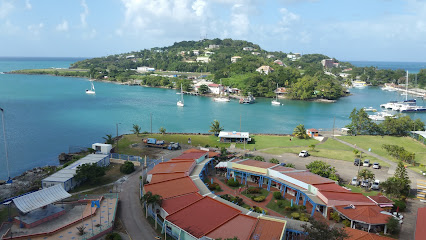
Diamond Falls Botanical Gardens & Mineral Baths
Explore the breathtaking beauty of Diamond Falls Botanical Gardens & Mineral Baths, where vibrant flora meets soothing mineral waters in St. Lucia.
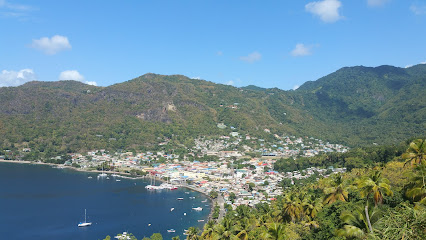
Tet Paul Nature Trail
Discover the stunning Tet Paul Nature Trail in St. Lucia, a perfect blend of breathtaking views and rich biodiversity, ideal for nature lovers and adventure seekers.
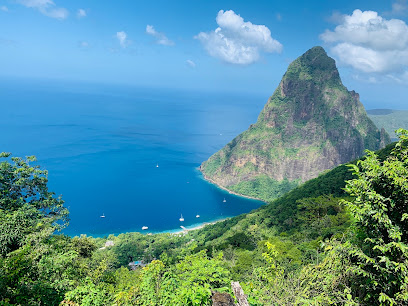
Zoëtry Marigot Bay St. Lucia
Discover the epitome of luxury at Zoëtry Marigot Bay St. Lucia, where breathtaking views and exceptional service create the perfect Caribbean getaway.
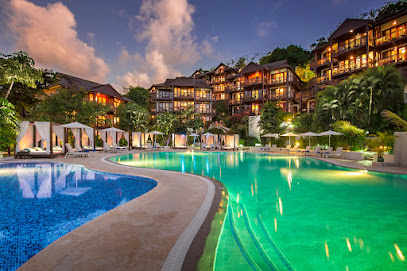
La Place Carénage
Discover La Place Carénage in Castries, St. Lucia: a vibrant shopping mall offering local crafts, delicious dining, and stunning waterfront views.
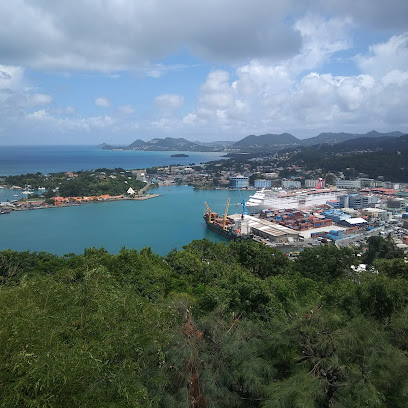
Marigot Beach Club & Dive Resort
Immerse yourself in the enchanting beauty of Marigot Bay at the Marigot Beach Club & Dive Resort, where adventure and relaxation await you.

The Minor Basilica of the Immaculate Conception (Cathedral)
Discover the stunning Minor Basilica of the Immaculate Conception, a Gothic masterpiece in Castries, St. Lucia, rich in history and architectural beauty.
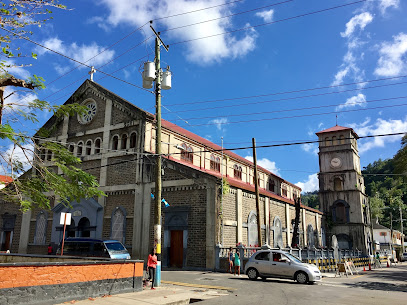
Treetop Adventure Park
Discover the thrill of zip-lining and aerial courses in the heart of St. Lucia's lush landscapes at Treetop Adventure Park.
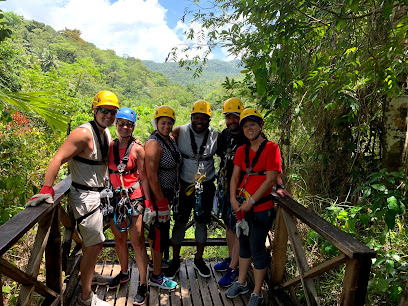
Gros Piton Nature Trail
Discover the breathtaking Gros Piton Nature Trail, a hiking paradise in St. Lucia, showcasing stunning views and rich biodiversity.
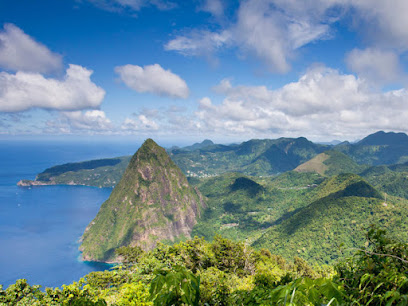
Project Chocolat
Explore the art of chocolate-making at Project Chocolat in St. Lucia, an interactive experience for chocolate lovers and culinary adventurers alike.
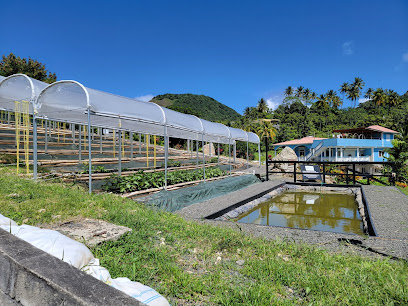
Roots 2
Experience the flavors of St. Lucia at Roots 2, a grill restaurant in Marigot Bay offering delicious local cuisine and stunning waterfront views.
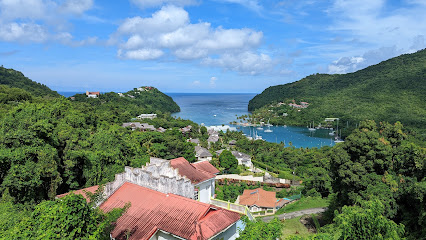
Fort Rodney
Explore the historical significance and natural beauty of Fort Rodney in St. Lucia, a premier tourist attraction with stunning views and rich heritage.
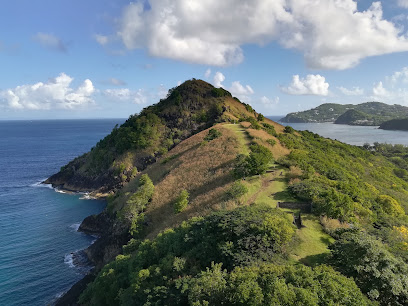
Château Mygo House of Seafood
Savor fresh seafood with stunning views at Château Mygo House of Seafood in Marigot Bay, a culinary treasure in St. Lucia.
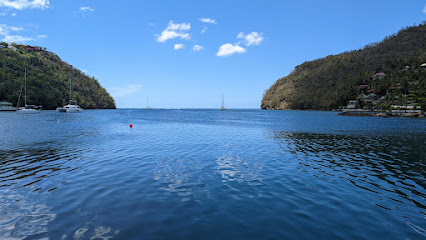
Carnival Sailing Limited
Experience the beauty of St. Lucia's coastline with Carnival Sailing Limited, offering unforgettable boat tours and adventures in the Caribbean.
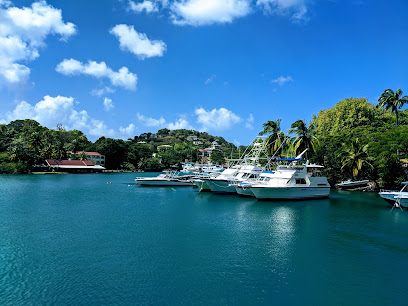
Eudovic's Art Studio
Discover the vibrant artistry of St. Lucia at Eudovic's Art Studio, where local craftsmanship meets cultural heritage in a stunning gallery setting.
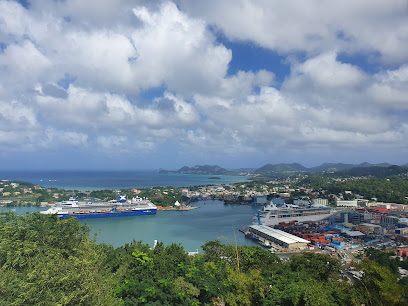
Unmissable attractions to see
Soufrière Drive In Volcano
Experience the awe-inspiring Soufrière Drive-In Volcano in St. Lucia, a unique blend of geothermal wonders and Caribbean charm.
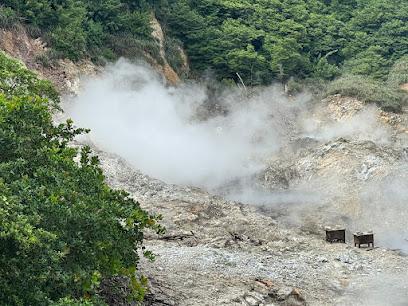
Rodney Bay Marina
Experience the vibrant atmosphere and stunning views at Rodney Bay Marina, St. Lucia's premier destination for relaxation and adventure.
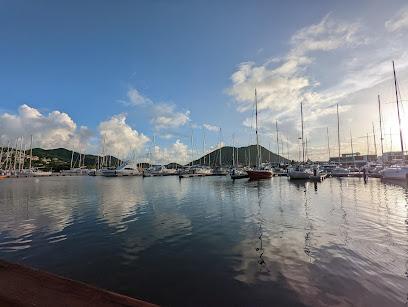
Diamond Falls Botanical Gardens & Mineral Baths
Explore the lush landscapes and rejuvenating mineral baths at Diamond Falls Botanical Gardens, a premier attraction in St. Lucia!
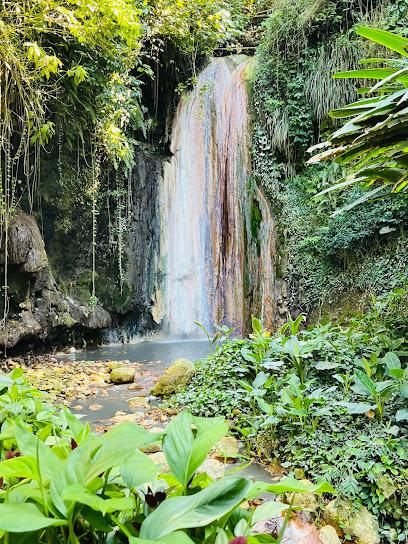
Daren Sammy Cricket Ground.
Dive into the vibrant cricket culture of St. Lucia at Daren Sammy Cricket Ground, a premier destination for sports fans and tourists.
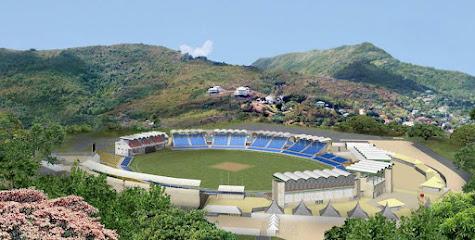
Toraille Waterfall Villas & ATV
Experience the breathtaking beauty of Toraille Waterfall in Soufriere, St. Lucia, where nature's tranquility meets adventure in a tropical paradise.
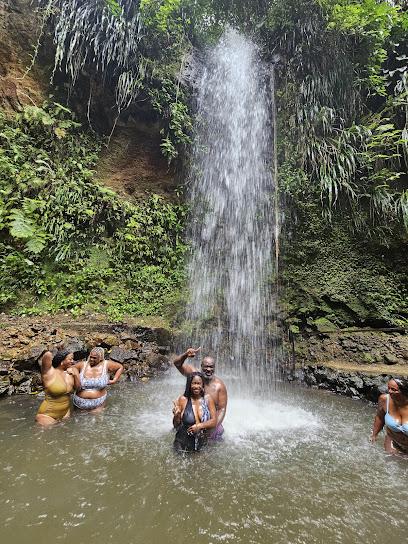
Saint Lucia National Trust
Discover the captivating history and natural beauty of Saint Lucia National Trust, a UNESCO World Heritage site rich in culture and adventure.
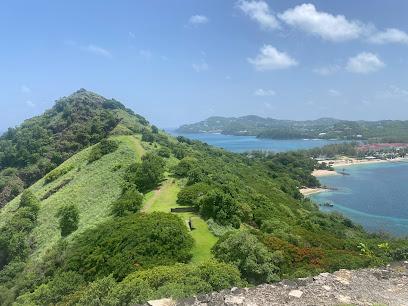
Ultra Lounge
Discover the vibrant nightlife at Ultra Lounge in Rodney Bay, where delicious food, refreshing drinks, and a lively atmosphere await every visitor.
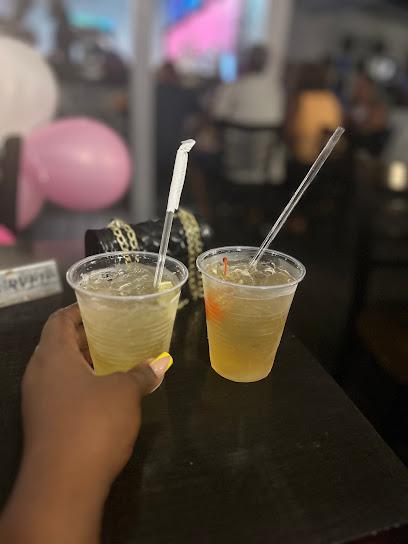
The Minor Basilica of the Immaculate Conception (Cathedral)
Experience the spiritual and architectural beauty of the Minor Basilica of the Immaculate Conception in Castries, a must-see for every traveler in St. Lucia.
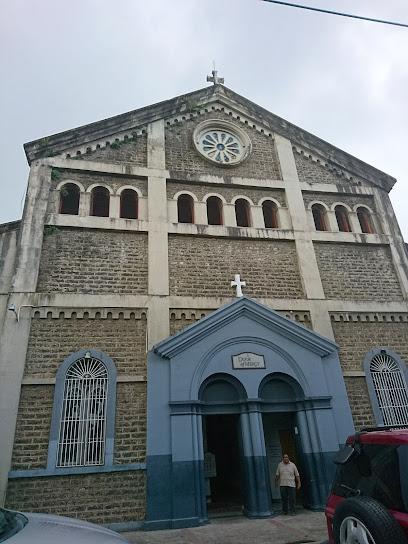
Morne Coubaril Historical Adventure Park
Immerse yourself in the rich history and adventure of Morne Coubaril Estate, a must-visit tourist attraction in St. Lucia offering lush scenery and thrilling activities.
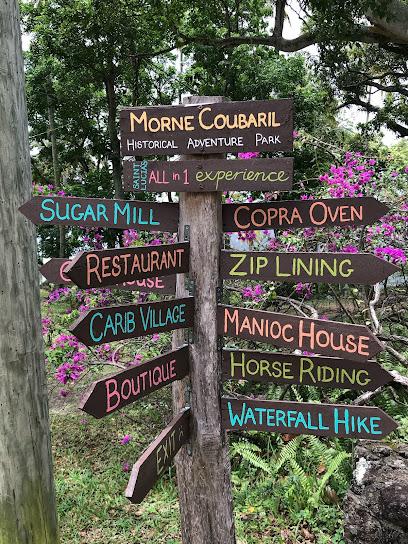
Treetop Adventure Park
Discover the exhilarating Treetop Adventure Park in Dennery, St. Lucia, where zip lining meets stunning natural beauty for an unforgettable adventure.
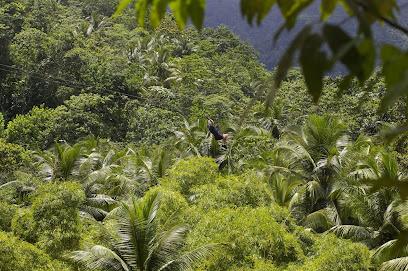
Morne Coubaril Historical Adventure Park
Explore the vibrant history and thrilling adventures at Morne Coubaril Historical Adventure Park in the heart of St. Lucia, where culture meets excitement.
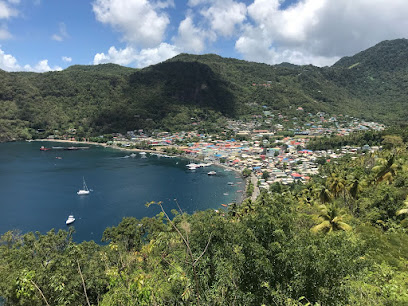
Piton Falls
Explore the serene beauty of Piton Falls in St. Lucia, a breathtaking natural attraction perfect for nature lovers and adventure seekers alike.
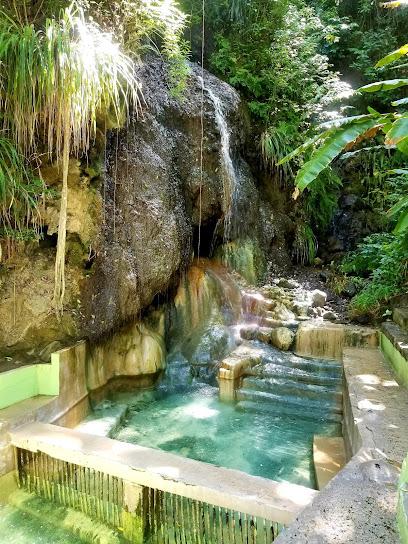
Gros Piton Nature Trail
Discover the breathtaking Gros Piton Nature Trail in St. Lucia, where stunning views and diverse wildlife await every adventurous hiker.
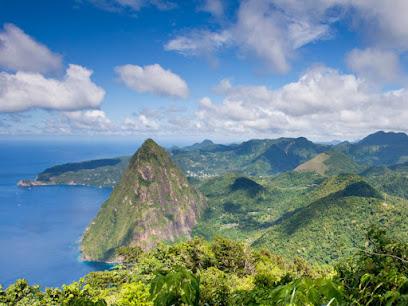
Rainforest Adventure
Explore the lush landscapes and thrilling activities at Rainforest Adventure in Castries, St. Lucia, a paradise for nature lovers and adventure seekers.
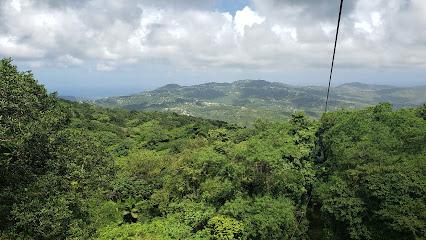
St. Lucia Distillers Ltd
Experience the essence of Caribbean culture at St. Lucia Distillers, where tradition meets flavor in every sip of premium rum.

Essential places to dine
The Coal Pot Restaurant
Discover St. Lucia's finest seafood at The Coal Pot Restaurant - where fresh ingredients meet stunning Caribbean views.
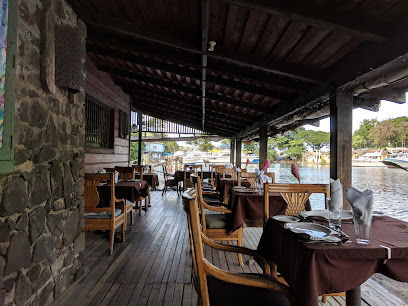
The Beacon Restaurant
Experience the essence of Caribbean cuisine at The Beacon Restaurant in Palmiste, St. Lucia – where flavor meets breathtaking views.
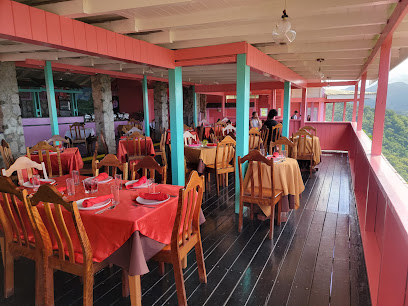
Marigot Beach Club & Dive Resort
Experience paradise at Marigot Beach Club & Dive Resort with exquisite dining, thrilling diving adventures, and soothing spa treatments amidst stunning Caribbean scenery.

Orlando's Restaurant & Bar
Experience authentic Creole cuisine at Orlando's Restaurant & Bar in Soufriere, St. Lucia—where flavor meets island charm.
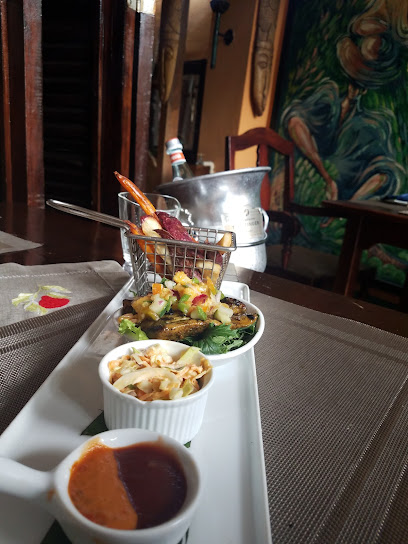
Roots 2
Discover Roots 2: A Culinary Haven in Marigot Bay Offering Exquisite Grilled Dishes with Stunning Views.
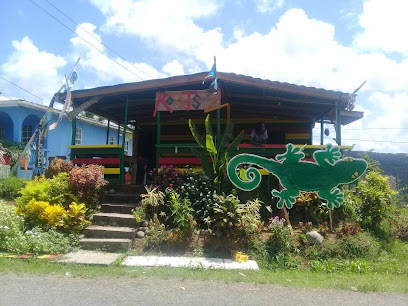
Pink Plantation
Experience exquisite dining at Pink Plantation in Good Lands, St. Lucia - where culinary delights meet breathtaking views.
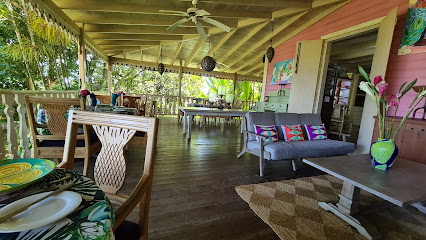
Château Mygo House of Seafood
Discover exquisite seafood dining at Château Mygo House of Seafood in Marigot Bay, where fresh flavors meet stunning views.
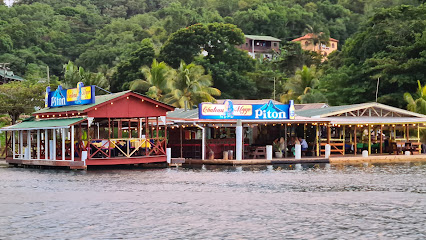
Chef Robby's Caribbean Pirates
Experience authentic Caribbean cuisine at Chef Robby's Pirates in Castries - where every meal tells a flavorful story.
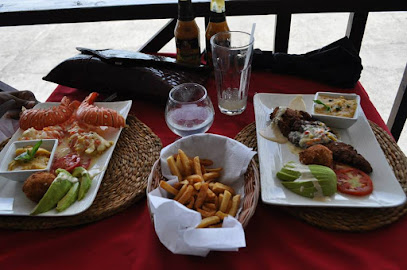
Pink Papaya
Experience authentic Caribbean flavors at Pink Papaya in Castries - a vibrant dining destination for food lovers visiting St. Lucia.
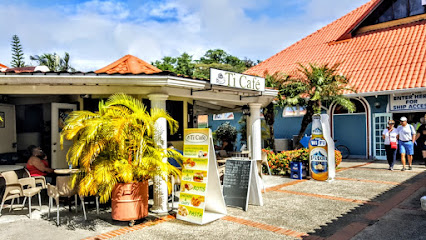
The Balcony Restaurant & Bar St.Lucia
Experience authentic Caribbean flavors and stunning views at The Balcony Restaurant & Bar in Castries, St. Lucia.
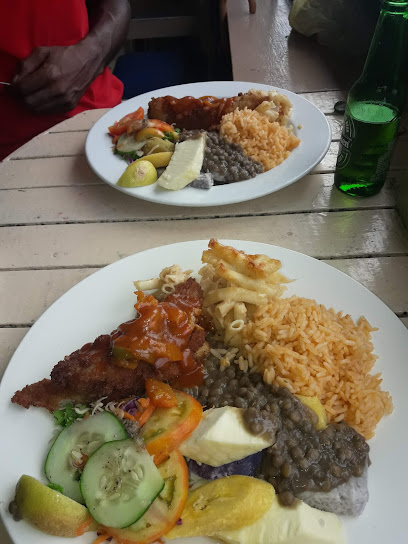
La Monique's
Experience authentic Caribbean flavors at La Monique's in Soucis, St. Lucia – where every meal is a celebration of local cuisine.
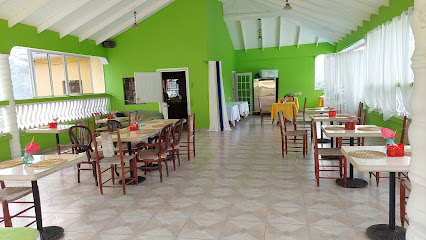
JJ's Paradise
Experience the vibrant flavors of St. Lucia at JJ's Paradise - where culinary excellence meets breathtaking views.
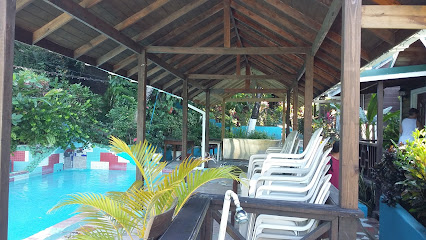
Doolittle’s
Experience authentic Caribbean cuisine at Doolittle’s in Marigot Bay, where vibrant flavors meet breathtaking views.
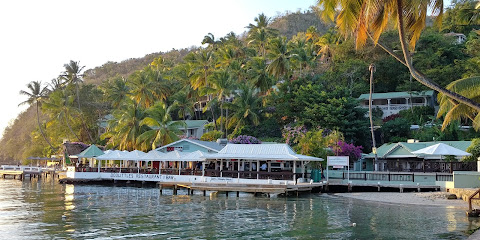
JJ's Mangrove Dockside
Discover authentic Caribbean cuisine at JJ's Mangrove Dockside in Soucis, St. Lucia – where every meal is enhanced by breathtaking views.
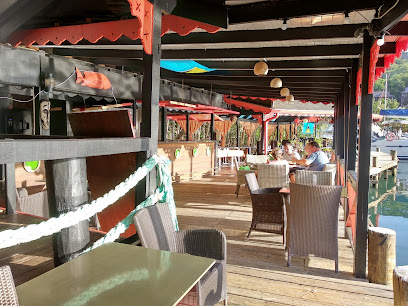
The Villa @ Marigot Bay
Experience exquisite St. Lucian cuisine and breathtaking views at The Villa @ Marigot Bay - where every meal becomes a cherished memory.
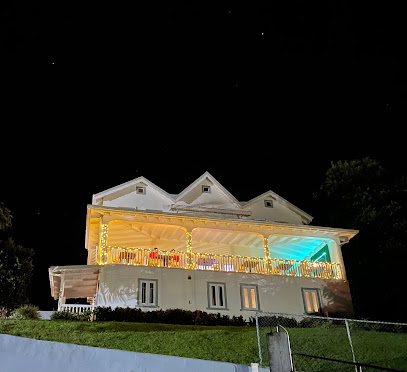
Markets, malls and hidden boutiques
Duty Free Pointe Seraphine Shopping Complex
Explore St. Lucia's premier shopping destination at Duty Free Pointe Seraphine Shopping Complex, where luxury meets local charm.
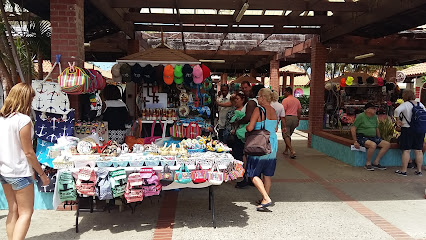
Diamonds International Pointe Seraphine
Explore exquisite jewelry at Diamonds International Pointe Seraphine, where luxury meets the vibrant spirit of St. Lucia.
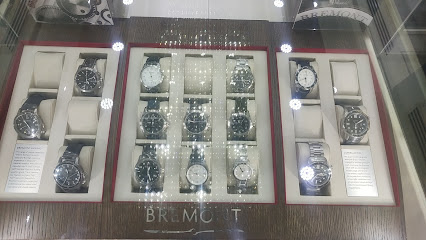
The Promise Supermarket
Discover the local flavors and essentials at The Promise Supermarket in Marigot, St. Lucia, your one-stop shop for island delights.
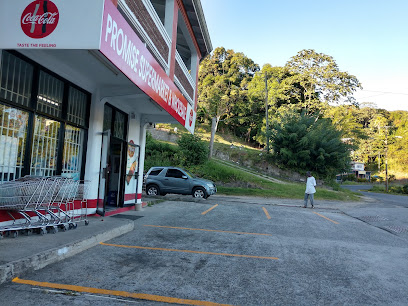
Franzette's Boxx- Customized Gifts in St. Lucia
Discover unique customized gifts at Franzette's Boxx in St. Lucia, perfect for souvenirs and special occasions.

Sea Island Cotton Shop
Discover the luxurious Sea Island Cotton Shop in Rodney Bay, St. Lucia - a treasure trove of authentic textiles and local craftsmanship.
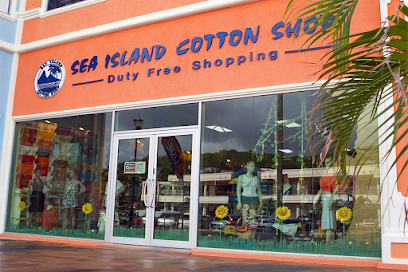
Pam´s Minimarket
Explore the diverse offerings of Pam's Minimarket in Soucis, St. Lucia, your essential grocery destination for local and international goods.
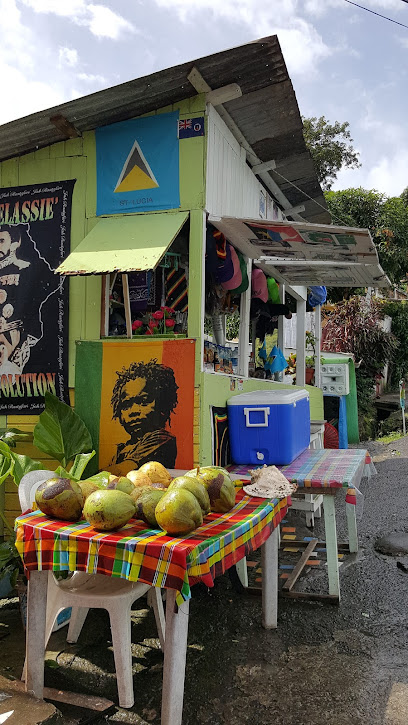
Leelee's Heart (handmade creations)
Explore Leelee's Heart in Sarot, St. Lucia for unique handmade creations and natural products that celebrate local craftsmanship.
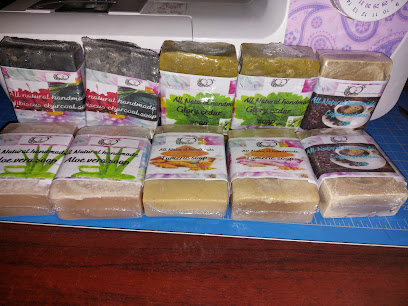
Dollar City
Explore Dollar City, where Caribbean fashion meets affordability in the heart of St. Lucia.
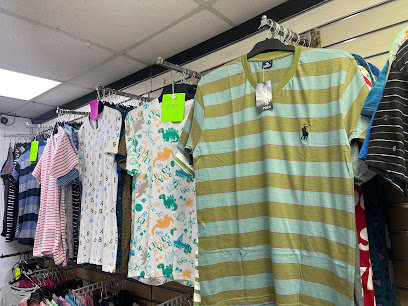
Coco Cafe
Experience the rich flavors of St. Lucia at Coco Cafe, a charming coffee shop in Castries, perfect for coffee lovers and tourists seeking relaxation.
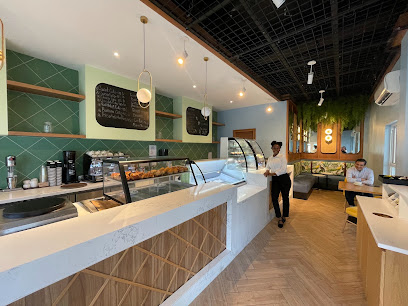
Valcyn Ltd
Explore Valcyn Ltd, the ultimate baby clothing store in Castries, St. Lucia, offering stylish and comfortable attire for your little ones.
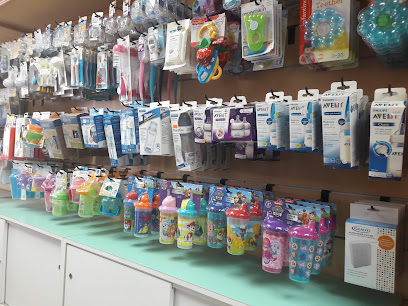
LUCY'S MINI MART
Explore local flavors and essentials at Lucy's Mini Mart, a charming grocery store in the heart of St. Lucia's countryside.

Helen Mini-Mart
Experience the essence of St. Lucia at Helen Mini-Mart, a local grocery store offering fresh produce and local delicacies in Castries.
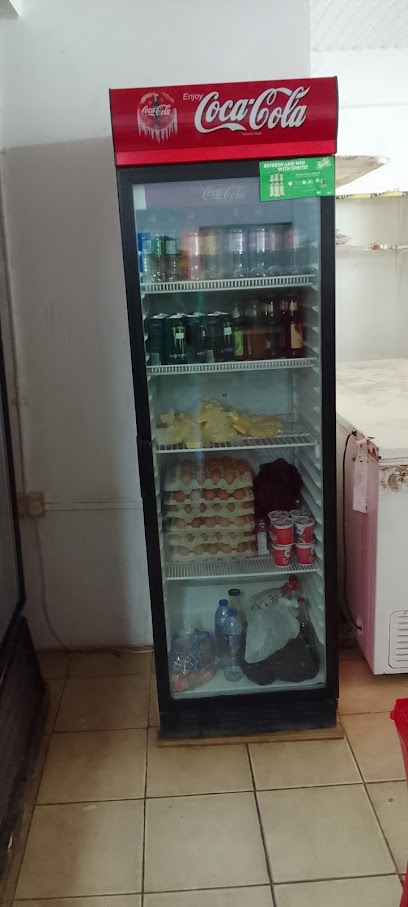
Irie Blue
Discover the vibrant spirit of St. Lucia at Irie Blue, your ultimate gift shop for authentic clothing and unique crafts.
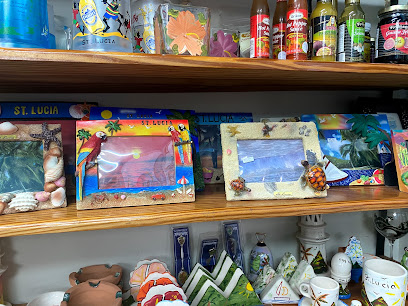
The Lady Shop
Discover authentic St. Lucian flavors and local products at The Lady Shop in Ferrand, a must-visit grocery store for tourists seeking unique culinary experiences.
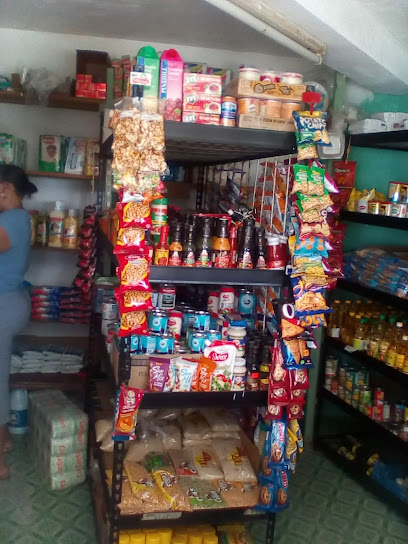
Kaycee's
Discover stylish local fashion at Kaycee's, a must-visit clothing store in the heart of Castries, St. Lucia.
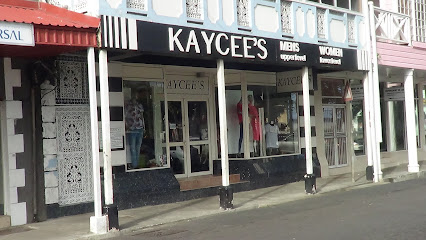
Essential bars & hidden hideouts
Marigot Beach Club & Dive Resort
Experience the perfect blend of relaxation and adventure at Marigot Beach Club & Dive Resort, a paradise in St. Lucia's breathtaking Marigot Bay.

Roots 2
Discover the culinary excellence of Roots 2 in St. Lucia, where local flavors meet breathtaking waterfront views for an unforgettable dining experience.
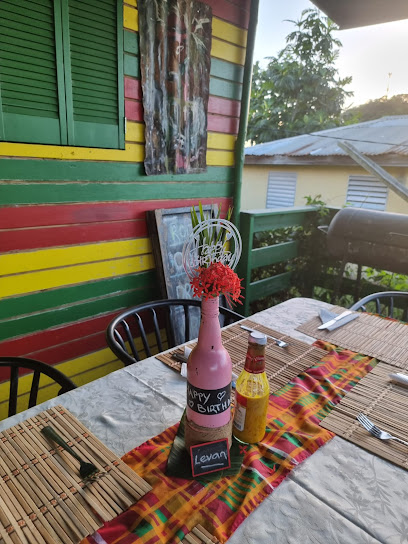
Château Mygo House of Seafood
Discover the essence of Caribbean cuisine at Château Mygo House of Seafood in Marigot Bay, featuring fresh catches and stunning waterfront views.
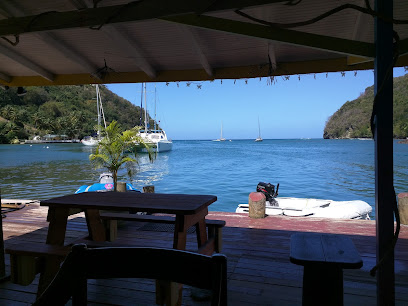
Valelse Sports Bar & Soup Kitchen
Discover the vibrant atmosphere and delicious local cuisine at Valelse Sports Bar & Soup Kitchen, where Caribbean culture and hospitality come alive.
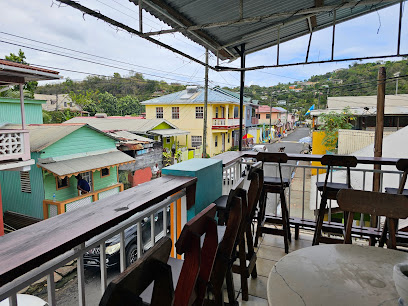
Horizon Cocktails View Point Bar & Grill
Experience breathtaking views and delicious grilled cuisine at Horizon Cocktails View Point Bar & Grill in Anse la Verdure, St. Lucia.
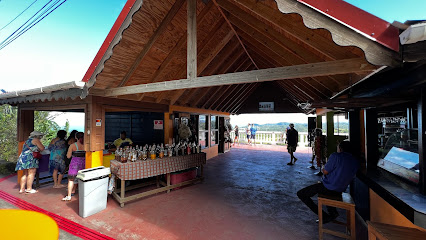
La Monique's
Experience the authentic flavors of St. Lucia at La Monique's, where local ingredients and warm hospitality create unforgettable dining moments.
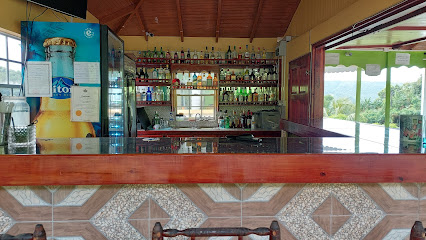
JJ's Paradise
Discover the culinary delights of St. Lucia at JJ's Paradise, where local flavors meet stunning views in a vibrant island atmosphere.
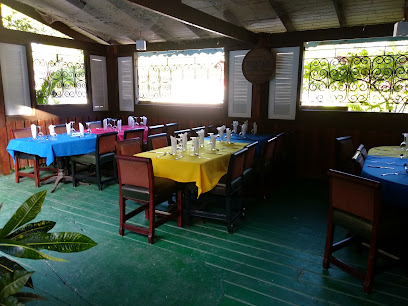
Doolittle’s
Experience the vibrant flavors of St. Lucia at Doolittle's, a charming restaurant in the breathtaking Marigot Bay, perfect for food lovers and adventurers.
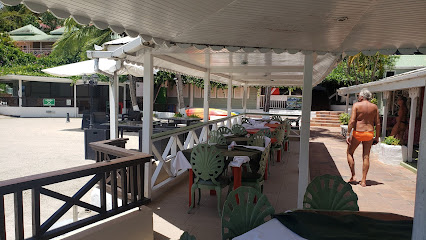
JJ's Mangrove Dockside
Indulge in a culinary adventure at JJ's Mangrove Dockside, where stunning views meet exquisite local flavors in the heart of St. Lucia.
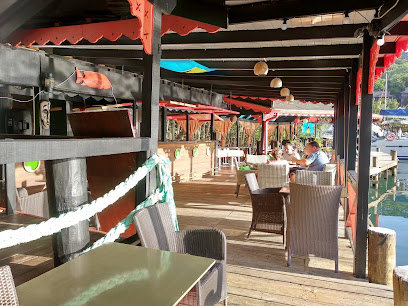
The Villa @ Marigot Bay
Discover the exquisite flavors of the Caribbean at The Villa @ Marigot Bay, where stunning views meet culinary excellence.

Hurricane Hole
Experience the best of Caribbean cuisine with stunning ocean views at Hurricane Hole in Soucis, St. Lucia.
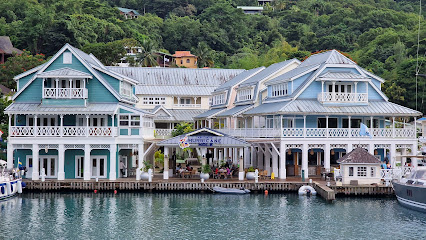
The Rum Cave At Zoëtry
Discover the exquisite taste of Caribbean rum-infused dishes at The Rum Cave At Zoëtry, where culinary tradition meets tropical elegance.
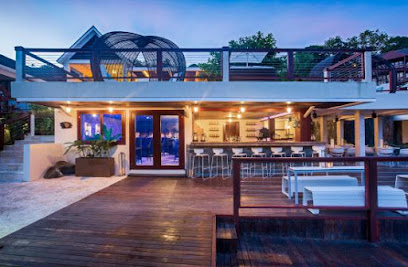
Vee's bar & grill
Experience the best of Caribbean cuisine at Vee's Bar & Grill in Marigot, the ultimate family-friendly dining destination in St. Lucia.
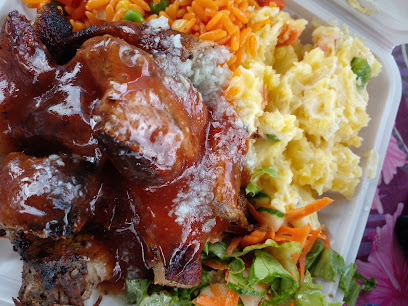
The Mangrove
Discover the culinary delights of The Mangrove in Marigot Bay, St. Lucia, where local flavors meet stunning coastal views.
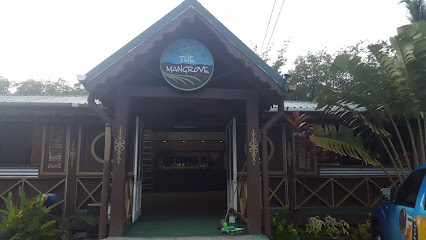
Local Phrases
-
- HelloBonjour
[bon-zhoor] - GoodbyeAu revoir
[oh re-vwar] - YesWi
[wee] - NoNon
[nohn] - Please/You're welcomeS'il vous plaît/De rien
[seel voo pleh/dee ree-ehn] - Thank youMerci
[mehr-see] - Excuse me/SorryExcusez-moi/Désolé
[ex-kew-zay-mwah/deh-zoh-lay] - How are you?Kouman ou ye?
[koo-mahn oo yay] - Fine. And you?Byen. E ou menm?
[byen/eh oo mehn] - Do you speak English?Eske ou pale angle?
[es-keh oo pah-lay ahn-glay] - I don't understandMwen pa konprann
[mwahn pah kohn-prahn]
- HelloBonjour
-
- I'd like to see the menu, pleaseMwen ta renmen wè meni a, tanpri
[mwahn tah rahn-mehn weh meh-nee ah, tahn-pree] - I don't eat meatMwen pa manje vyann
[mwahn pah mahn-jay vee-ahn] - Cheers!Santé!
[sahn-tay] - I would like to pay, pleaseMwen ta renmen peye, tanpri
[mwahn tah rahn-mehn pay-yay, tahn-pree]
- I'd like to see the menu, pleaseMwen ta renmen wè meni a, tanpri
-
- Help!Au secours!
[oh seh-coor] - Go away!Alé!
[ah-lay] - Call the Police!Rele Polis!
[reh-lay poh-lees] - Call a doctor!Rele yon doktè!
[reh-lay yohn dohk-tay] - I'm lostMwen pedi
[mwahn peh-dee] - I'm illMwen malad
[mwahn mah-lahd]
- Help!Au secours!
-
- I'd like to buy...Mwen ta renmen achte...
[mwahn tah rahn-mehn ahsh-tay] - I'm just lookingMwen jis gade
[mwahn zjee gahd] - How much is it?Konbyen li ye?
[kohn-bee-yen lee yay] - That's too expensiveSa twò chè
[sah twah sheh] - Can you lower the price?Eske ou kapab redwi pri la?
[es-keh oo kah-pahb reh-dwee pree lah]
- I'd like to buy...Mwen ta renmen achte...
-
- What time is it?Kisa lè li ye?
[kee-sah leh lee yay] - It's one o'clockLi yonnè
[lee yohn-nay] - Half past (10)Deminit (10)
[deh-mee-nee (dix)] - MorningMaten
[mah-tehn] - AfternoonAprèmidi
[ah-prey-mee-dee] - Eveningswa
[swah] - YesterdayYè
[yeh] - TodayJodi a
[zho-dee ah] - TomorrowDemen
[deh-mehn] - 1Yonn
[yohn] - 2De
[deh] - 3Twaz
[twaz] - 4Kat
[kaht] - 5Sennk
[senk] - 6Sis
[sees] - 7Sèt
[set] - 8Wit
[weet] - 9Nèf
[nef] - 10Dis
[dees]
- What time is it?Kisa lè li ye?
-
- Where's a/the...?Ki kote...?
[kee koh-teh] - What's the address?Kisa adrès la ye?
[kee-sah ah-dreh lah yay] - Can you show me (on the map)?Eske ou kapab montre mwen (sou kat la)?
[es-keh oo kah-pahb mohn-tray mwahn (soh kaht lah)] - When's the next (bus)?Ki lè pròchenn la ye?
[kee leh proh-shenn lah yay] - A ticket (to ....)Yon tikè (pou ....)
[yohn tee-kay (poo)]
- Where's a/the...?Ki kote...?
History of Marigot Bay
-
Before the Europeans arrived, the area around Marigot Bay was inhabited by the Arawaks and later the Caribs. These indigenous people lived off the land and the sea, utilizing the bay for fishing and transportation. Their presence is still felt today through archaeological artifacts and the cultural influence they left behind.
-
Marigot Bay was first documented by European explorers in the 16th century. The French and English both vied for control over Saint Lucia, and Marigot Bay became a strategic point due to its natural harbor and lush surroundings. The bay provided a safe haven for ships and was a focal point in the colonial tug-of-war.
-
One of the significant historical events in Marigot Bay was the naval battle between the French and the British in 1778. The bay's natural geography provided the French with a tactical advantage, allowing them to hide their ships within the dense mangroves and launch a surprise attack on the British fleet. This battle was part of the larger conflict known as the American Revolutionary War, which had global repercussions.
-
During the 18th and 19th centuries, the area around Marigot Bay was home to several sugar plantations. These plantations were worked by enslaved Africans, and their labor contributed significantly to the island’s economy. Remnants of these plantations can still be found in the form of ruins and old machinery, serving as a poignant reminder of this dark chapter in Saint Lucia's history.
-
In the mid-20th century, Marigot Bay began to transform from a quiet fishing village into a burgeoning tourist destination. Its stunning natural beauty attracted visitors from around the world. The bay was also featured in the 1967 film 'Doctor Dolittle,' which further increased its popularity. Resorts, marinas, and luxury villas started to spring up, making Marigot Bay a key player in Saint Lucia's tourism industry.
-
Today, Marigot Bay is a harmonious blend of history and modernity. Efforts are constantly being made to preserve its rich cultural heritage while accommodating contemporary developments. The bay is not only a hotspot for tourists but also a community where locals celebrate their history through festivals, music, and cuisine. The annual La Rose and La Marguerite festivals are particularly notable, showcasing the island's unique cultural blend.
Marigot Bay Essentials
-
Marigot Bay is located on the western coast of Saint Lucia. The nearest international airport is Hewanorra International Airport (UVF) in the south of the island, approximately 55 kilometers away. From the airport, you can take a taxi or arrange for a private transfer to Marigot Bay, which typically takes around 1.5 hours. Alternatively, you can fly into George F. L. Charles Airport (SLU) in Castries, which is closer, about 15 kilometers away, and a 30-minute drive from Marigot Bay.
-
Getting around Marigot Bay and its surroundings can be done via taxis, which are readily available and can be arranged through your hotel or resort. Car rentals are also an option if you prefer to explore at your own pace. Water taxis are a popular mode of transport for getting from Marigot Bay to nearby beaches and attractions. Public buses run infrequently and are less reliable, but they are the most budget-friendly option for traveling around the island.
-
The official currency in Saint Lucia is the Eastern Caribbean Dollar (XCD). Major credit cards are widely accepted in hotels, restaurants, and shops in Marigot Bay. However, it's advisable to carry some cash for smaller establishments and local markets. ATMs are available in Marigot Bay and nearby Castries, but it's wise to withdraw sufficient cash in larger towns to avoid any inconvenience.
-
Marigot Bay is generally considered safe for tourists. However, it's best to take standard precautions such as avoiding isolated areas after dark, securing your valuables, and being aware of your surroundings. While Marigot Bay itself doesn't have high crime rates targeting tourists, it's advisable to be cautious when traveling to more remote parts of the island.
-
In case of emergency, dial 911 for immediate assistance. Marigot Bay has a local police station and medical facilities. For more serious medical emergencies, the nearest hospital is Victoria Hospital in Castries. It is highly recommended to have travel insurance that covers medical emergencies. Pharmacies are available for minor health issues and over-the-counter medications.
-
Fashion: Do dress casually but respectfully; beachwear should be reserved for the beach. Avoid overly revealing clothing in public areas. Religion: Do respect local customs and dress modestly if visiting churches. Public Transport: Do be polite and patient when using public transport, and don’t expect it to run on a strict schedule. Greetings: Do greet locals with a friendly 'Good morning' or 'Good afternoon.' Eating & Drinking: Do try local dishes and accept invitations to join locals for meals. Don’t refuse food or drink, as it may be considered impolite.
-
To experience Marigot Bay like a local, visit the local markets and engage with residents. Try the local cuisine, such as fresh seafood and traditional Creole dishes. Take a walk along the marina and chat with the boat owners. Don’t miss out on the Friday night Fish Fry in the nearby village of Anse La Raye for a genuine local experience. Engage in water-based activities like kayaking or paddleboarding to fully appreciate the beauty of the bay.
Trending Landmark in Marigot Bay
-
Pointe Seraphine Cruise Port
-
Diamond Falls Botanical Gardens & Mineral Baths
-
Tet Paul Nature Trail
-
Zoëtry Marigot Bay St. Lucia
-
La Place Carénage
-
Marigot Beach Club & Dive Resort
-
The Minor Basilica of the Immaculate Conception (Cathedral)
-
Treetop Adventure Park
-
Gros Piton Nature Trail
-
Project Chocolat
-
Roots 2
-
Fort Rodney
-
Château Mygo House of Seafood
-
Carnival Sailing Limited
-
Eudovic's Art Studio
Nearby Cities to Marigot Bay
-
Things To Do in Anse la Raye
-
Things To Do in Castries
-
Things To Do in Canaries
-
Things To Do in Soufrière
-
Things To Do in Dauphin
-
Things To Do in Malgretoute
-
Things To Do in Rodney Bay
-
Things To Do in Gros Islet
-
Things To Do in Praslin
-
Things To Do in Micoud
-
Things To Do in Choiseul
-
Things To Do in Laborie
-
Things To Do in Vieux Fort
-
Things To Do in Georgetown
-
Things To Do in Chateaubelair






